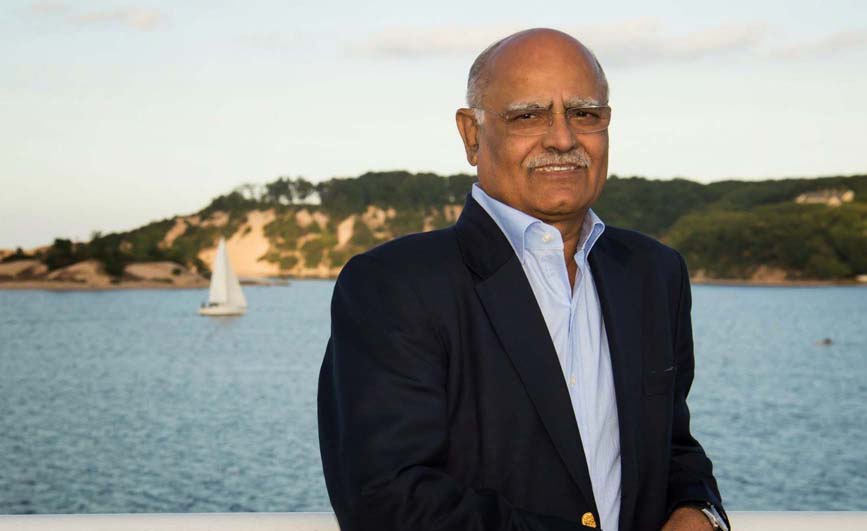In Singles Match for Top Job, Only Mixed Doubles Will Decide Government Formation

Who will become the Prime Minister in May 2014? No prospective aspirant has an answer. But one thing is indubitable. Only the singles at the helm of states will anoint one among them as Indian democracy’s next Moghul. If opinion polls and drawing room gossip are any indications, only a single by status will become India’s Prime Minister. If one goes by the list of probables and others who would matter in the finals, not a single married politician’s name figures, even as a dark horse. The BJP was the first party to announce NaMo, a single man, as its choice for the top job. It was for the second time that the saffron party opted for a singular single after Atal Bihari Vajpayee. Other singles such as West Bengal CM Mamata Banerjee, Tamil Nadu CM J Jayalalithaa, Bihar CM Nitish Kumar (widower) and even BSP President Mayawati are projected as likely occupants of 7 Race Course Road. Finally, the 120-year-old Congress party has also chosen its young, single inheritor Rahul Gandhi to pick up the gauntlet on its behalf. Indians are looking for single saviours among its politicians. Since over 60 per cent of voters are single, the names of leaders reflect their natural choice. Earlier, too, three other singles—Jayalalithaa, Mamata and Naveen Patnaik—decided the fate of India’s first single PM. While they were instrumental in Vajpayee being elected the PM, they were equally responsible for his fall.
Both the BJP and Congress are convinced that their single leaders will make it to South Block’s best-appointed room. But as the line from Macbeth goes “to make assurance doubly sure”, both parties are busy wooing other singles to support their bachelor leaders. There is no doubt that the combination of singles is awesome. Opinion polls and surveys project that they will collectively or individually dictate the choice and character of the next government in Delhi. The arithmetic is arresting: between the four of them, they are likely to garner around 130 seats. Modi-led NDA is expected to get a maximum of 210 seats. Unless two of the four singles with over 50 seats support Modi, he can’t become the PM even if his charisma earns the BJP the largest single party tag. Only a mixed doubles will decide the game of government formation. The BJP and its supporters are heavily dependent on Jayalalithaa to bail them out. The AIADMK legion has already announced that it would like to see its leader installed in 7 RCR. Last year, TMC had announced that Mamata cannot be ruled out as India’s supreme ruler. If Modi can’t achieve his mission, Rahul would have to turn to the same singles for escorting him to the swearing in at Raisina Hill. This can happen only if the Congress wins enough seats to attract an ally after the election. Surprisingly, Rahul and Modi may have caught the imagination of new and young voters to a certain extent, but both have miserably failed to charm the powerful singletons who control the keys to the PM’s office. Both contenders have hardly been in direct touch with members of the singles club. Barring a few photo-ops that NaMo got with Jayalalithaa, the two leaders have not been seen even making political overtures to other singles together. According to political analysts, it is for the first time in India’s democratic politics that personal egos and their vice-like grip over their respective organisations has made Indian political calculations unstable and unpredictable. With Mamata, Mayawati, Jayalalithaa and Patnaik keeping their cards close to their chests, Indian chatterati and foreign market manipulators are hedging their bets on the contours of the future dispensation.
The problem with foreign-educated and FII-funded experts is that they have failed to understand the political mindset of those who have risen from the grassroots, or through massive and traumatic inner party struggles, or simply nurtured in an elite-dominated social hierarchy. Mayawati and Mamata were ignored by the highly class and pedigree-conscious establishment. The two singles were the original architects of the aam aadmi paradigm, raising their outfits from scratch to acquire the status of queen or kingmaker. Jayalalithaa was humiliated by rootless satraps of her party after MGR’s death. She revived the AIADMK through sheer hard work and ideological differentiation. Only Patnaik entered politics with a degree and pedigree. But he learnt faster than his father Biju Patnaik and decimated his opponents with beguiling charisma. All of them are leaders of the parties they created themselves, which sustained their acceptability. While there is no ideological commonality between these four singles, each has his or her own political priorities and views on the political Carte du Tendre and would like to dictate not only the choice of the next PM, but the agenda for governance as well. At the moment, they have not been in dialogue with one another about any future coalition. But they have made it clear that they would like to instal a non-NDA and non-Congress government at the Centre. But consistency has never been a politician’s virtue.
In contrast to self-made regional satraps, both Modi and Rahul have inherited huge organisational support from their respective parties. Modi has added value to BJP with his outstanding performance as Gujarat chief minister. But without the BJP he may not get even one-fourth of the votes, which the party is capable of winning. Rahul’s situation is a little better as the Congress sans a Gandhi is an old Ambassador car without fuel. But a single difference—neither leader possesses the disarming charm or the smiling silence of Atal Bihari Vajpayee to win friends and influence enemies. Even Vajpayee was ejected from his office by the force of these singles.
Prabhuchawla@newindianexpress.com; Follow me on Twitter @PrabhuChawla

No comments:
Post a Comment